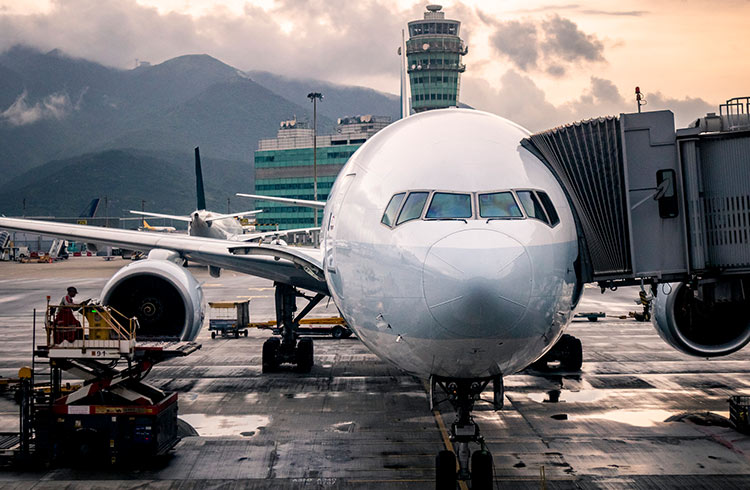Do Carbon Offsets Make a Difference When You Travel?
Carbon offsetting schemes have been around for a while, but can recent improvements make them a more valuable contribution to sustainable travel?
 Photo © Getty Images/Jordan Siemens
Photo © Getty Images/Jordan Siemens
- Are carbon offsets worth it?
- Finding the right carbon scheme
- Not just for airlines
- Improvements in the works
- Balancing act
In 2021, then-British Prime Minister Boris Johnson triggered outrage when, in the midst of a climate conference, he commandeered a private jet to fly the short return trip from Glasgow to London.
Such whirlwind private plane trips by a head of state would barely have raised an eyebrow a few years ago, but this was COP 26, the much-anticipated climate conference where even the most ardent climate skeptics confronted the truth of the planet’s emergency.
Why, cried the press, did the PM opt for a trip journey that, according to The Independent newspaper, would have produced almost 1,000kg more carbon emissions per passenger than if he had taken the train?
Like many of us, the PM’s press office justified the trip by offsets: “The Prime Minister traveled on one of the most carbon-efficient planes of its size in the world using the most sustainable aviation fuel possible. The UK will be offsetting all carbon emissions associated with running COP26, including travel.”
Are carbon offsets worth it?
So, does this make it okay? Are carbon offsets the answer? Or are they just a way for travel companies and airlines (and politicians) to lure us into guilt-free travel?
Basically, the idea of carbon offsetting is to compensate for the carbon or greenhouse emissions of our travel activity, often flying, by preventing pollution elsewhere or putting carbon back into the earth. The mitigation schemes include reforestation programs and renewable energy projects.
Some critics point out that it’s best to avoid, or reduce, emissions in the first place and others have criticized the quality of some of the schemes, saying they are not adequate for the job, or that without an international standard, there are too many loopholes.
However, in recent years and particularly at the aforementioned COP26, carbon schemes have come under scrutiny and improvements are in the works.
Professor Brent Ritchie, Dean and Head of the University of Queensland Business School and a specialist in sustainable travel, says it’s still too early to say if recent changes to carbon offsets make them more worthwhile, because of the dramatic reduction of travel due to the pandemic.
“This [COVID-19] has meant that offset programs supported by the travel industry have received substantially less from consumers with less flow-on benefits for reforestation, bio-diversity and local economic development,” says Professor Ritchie.
Another current setback is the low uptake and current consumer preference for local rather than international action when it comes to offsets.
“Research has shown that air travelers are more likely to pay carbon offsets for domestic rather than international travel,” says Ritchie.
“Consumers would also prefer to support local projects rather than international projects.”
Finding the right carbon offset scheme
The main issue though is the availability of offsets, according to Professor Ritchie. “The biggest challenge is the small number of travel industry companies that provide offset options. Only around a third of airlines offer some form of carbon offsetting.”
It’s also important that consumers do their research and find out more about what is on offer. “Ensuring that offsets are accredited is crucial,” he says. “More airlines and travel companies are ensuring their offset programs are accredited.”
Professor Ritchie emphasizes that increasing the effectiveness of carbon offsets requires the right offset products, clear and transparent information about the process of offsetting and evidence of the benefits of offsetting.
“The co-benefits (or additional benefits from the offset beyond carbon mitigation) such as biodiversity, air quality and economic benefits, have also been shown to increase the adoption of offsets.
“If the travel industry can overcome these barriers then offsetting will be much more effective than it has been in the past, especially with meetings like COP26 highlighting the climate emergency and the need to act quickly to reduce emissions.”
Not just for airlines
Of course, it’s not only the airlines who provide offsets. Tour operators and accommodation providers can also offset and this doesn’t always mean the consumer has to opt in or pay extra. Australian company Tasmanian Expeditions offers consumers the opportunity to offset all the carbon emissions an expedition with them produces.
But what exactly does that mean, we asked CEO Sue Badyari.
“There are two stages to us offsetting our travelers’ carbon emissions,” Ms Badyari said.
“Firstly, we calculate the emissions produced on our trips and secondly, we purchase carbon credits to offset the carbon emitted, and these credits are put towards Positive Impact Projects.”
“One carbon credit = one tonne of carbon and our credits are sourced from reputable carbon management company South Pole Group, who invest in renewable energy projects, including a wind farm in Vietnam, two forest conservation projects – one in Zimbabwe and the other in Australia – and a hydro project in China.”
“As well as offsetting the carbon our travelers emit, the projects we support contribute to the economic, social and environmental viability of communities and their ecosystems, shifting the focus from fossil fuel energy to adequate renewable resources,” Ms Badyari said.
Improvements in the works
In a recent blog post following COP26, Professor Lambert Schneider of the German environmental think tank Oeko Institute, and a participant in negotiations to improve carbon offsets at the conference said, “The Paris Agreement sets ambitious goals for international carbon markets: they should help raise ambition, avoid double counting, ensure environmental integrity and promote sustainable development.
“The most important achievement from Glasgow is the adoption of comprehensive accounting rules for the international transfer of carbon market units.”
This will address one of the biggest previous criticisms of carbon schemes – that of different rules across countries – and help to create a level playing field around how carbon trading is measured
Balancing act
Whether or not we agree that Boris Johnson’s short flight to London amounted to the ‘staggering hypocrisy’ he was accused of, the reality is, aren’t many of us travel lovers a little bit guilty when it comes to travel and the environment?
While sacrificing one-hour trips in a private jet won’t be difficult for most of us, we all need to re-think air travel if we are to help reduce emissions to net zero by 2050 in line with many of the world’s governments’ commitments following Glasgow.
It’s up to us, as responsible travelers, to consider flying less frequently and holding airlines to account by choosing the ones with the most sustainable practices (some information can be found at Atmosfair).
And once we have our heart set on travel, it’s worth looking into offsets and digging a little deeper to see what’s on offer; finding out how the offset works and if the scheme is accredited. We can be cautiously optimistic about the work being done by many travel companies, airlines and international governments to make carbon offsetting more meaningful.
Related articles
Simple and flexible travel insurance
You can buy at home or while traveling, and claim online from anywhere in the world. With 150+ adventure activities covered and 24/7 emergency assistance.
Get a quote

No Comments